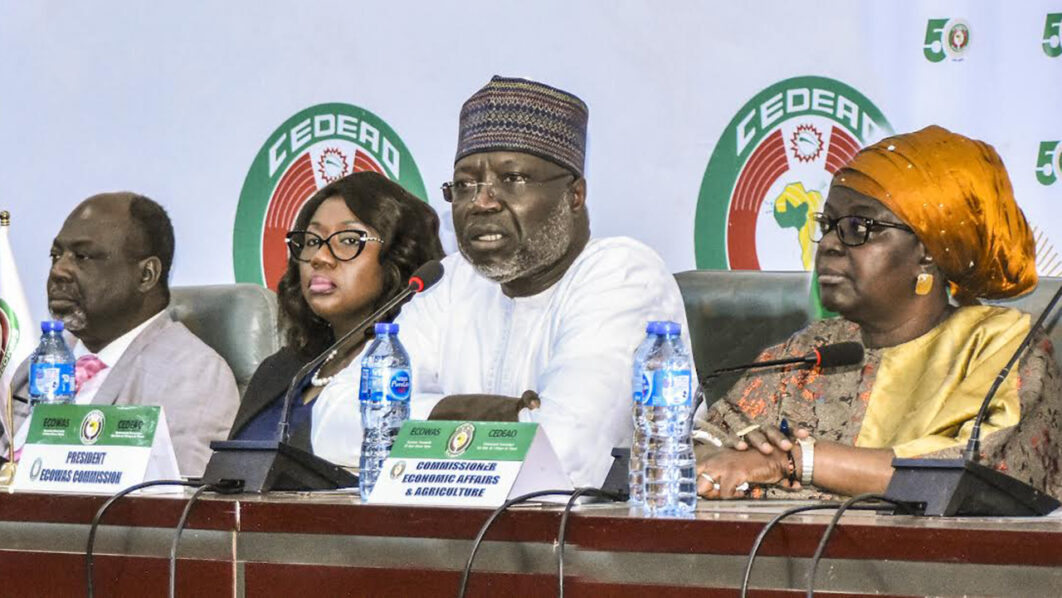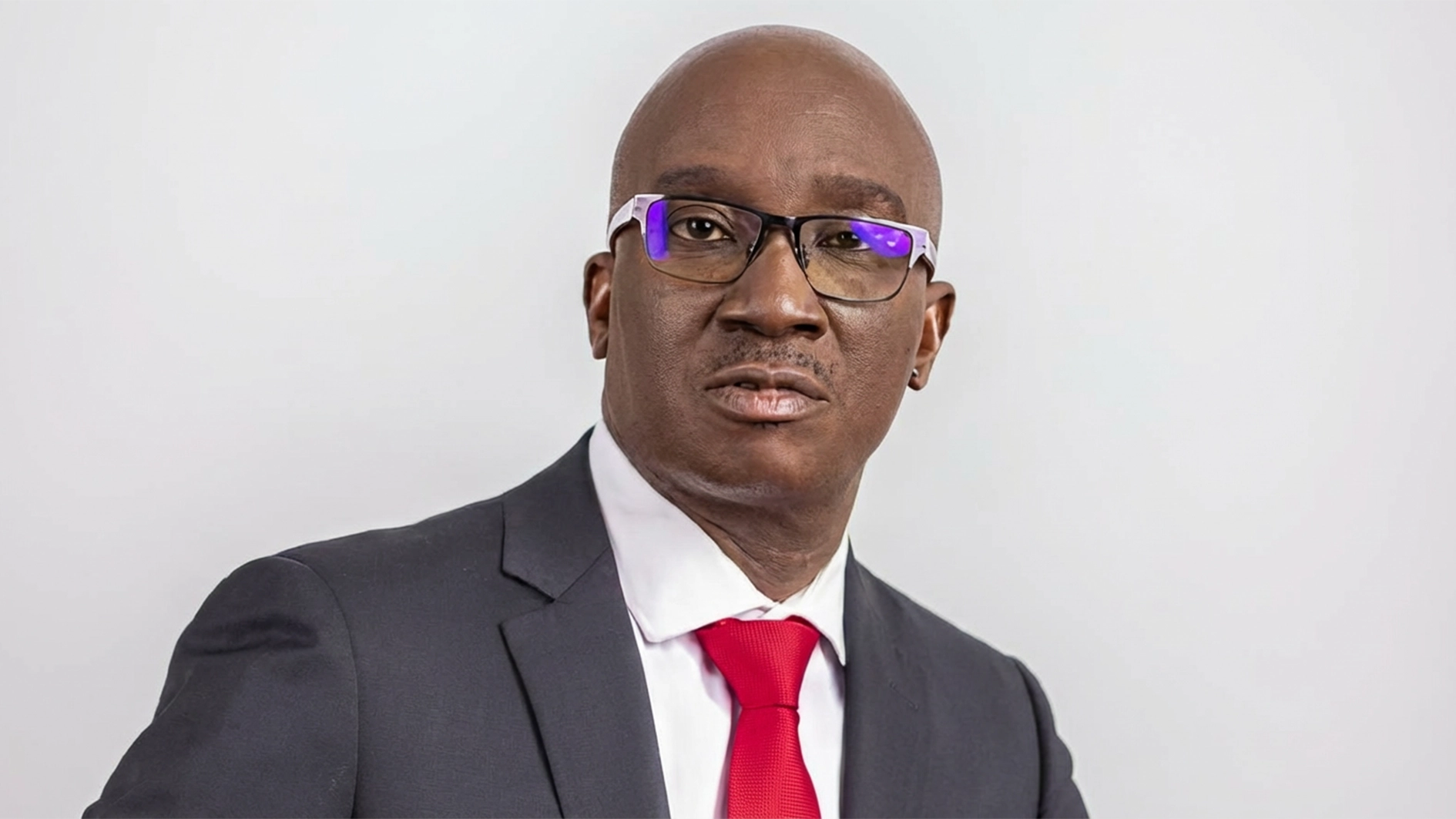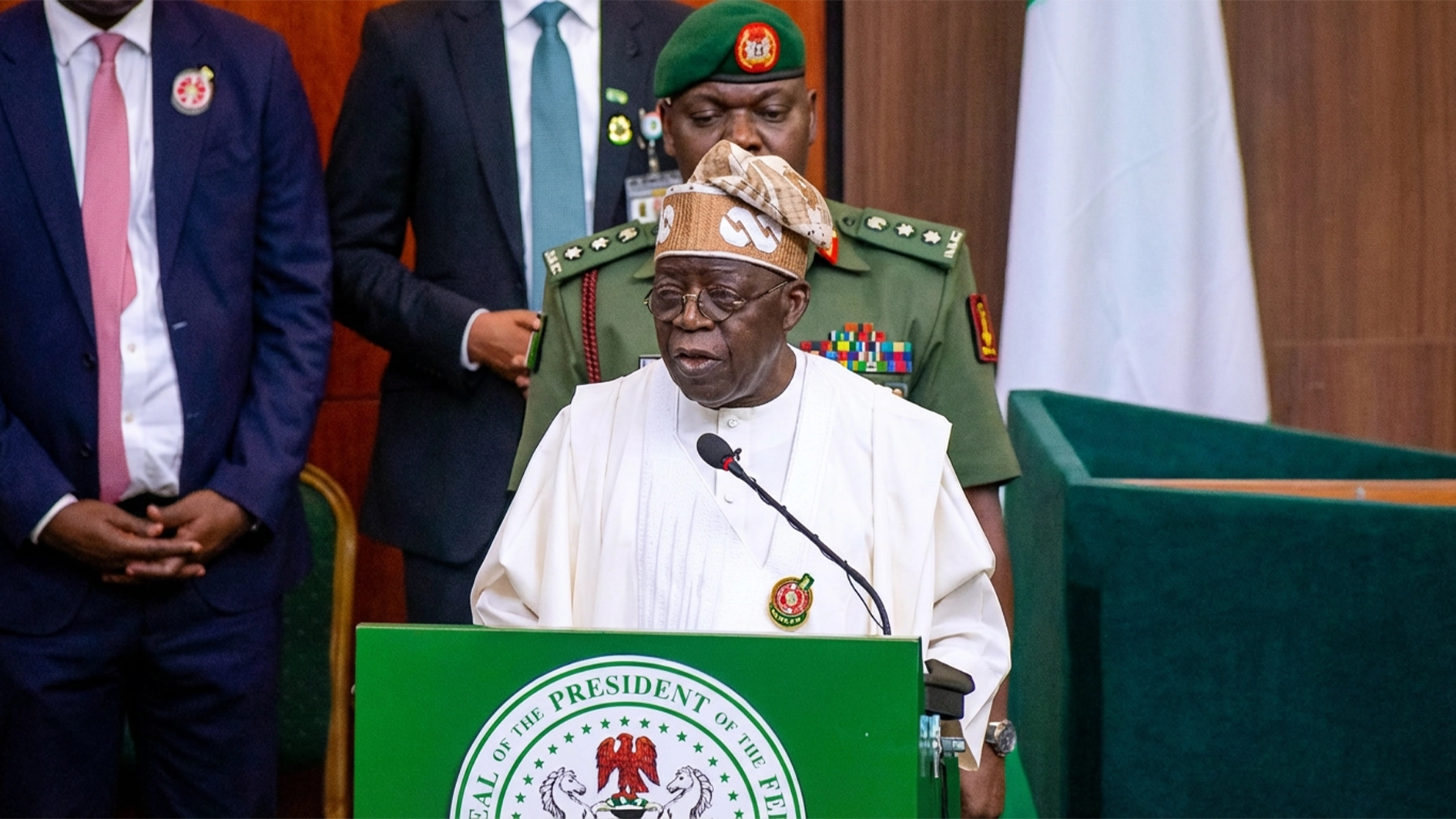
• Former privileges valid till completion of withdrawal processes
• ECOWAS says doors open should countries decide to rejoin
• AES will face significant consequences, Tuggar warns
• Campaign grows for release of Niger’s former president Bazoum
Nigeria’s Minister of Foreign Affairs, Yusuf Maitama Tuggar, has raised concerns over the withdrawal of Niger, Mali, and Burkina Faso from the Economic Community of West African States (ECOWAS), saying the decision would have significant security and economic repercussions.
He described their exit as a complex issue requiring careful consideration and diplomatic efforts to resolve. Tuggar’s reaction came as the President of ECOWAS, Dr Omar Alieu Touray, announced the final withdrawal of the Alliance of Sahel States (AES) members from the regional bloc at a media briefing in Abuja yesterday.
Tuggar, in an interview, pointed out that the decision to impose sanctions on the countries was collectively made by ECOWAS heads of state and government, noting that President Bola Ahmed Tinubu had worked tirelessly through diplomatic channels to persuade the countries to reconsider their stance.
“Several delegations have been sent to these countries, and the Presidents of Togo and Sierra Leone have been appointed as mediators to facilitate dialogue,” the Minister explained. “Additionally, ECOWAS has lifted sanctions imposed on them, paving the way for reconciliation.”
Tuggar expressed concerns about the security implications of the withdrawal, stressing that the region is already struggling with terrorism and humanitarian crises.
“ECOWAS has established a 1,650-strong brigade to combat terrorism and has offered financial assistance to support the affected countries in their fight against terrorism,” he said.
He also highlighted the substantial economic implications of their exit, noting that the countries would no longer be part of the regional economic community, which could limit their access to markets and hinder economic growth.
“Their withdrawal may disrupt regional integration efforts, including the African Continental Free Trade Area (AfCFTA),” Tuggar added. “The African Union and other international organisations have expressed concerns about the likely impact on regional integration and the stability of the continent.” The Minister emphasised the importance of continued collaboration and cooperation to address the challenges arising from this development.
“The regional bloc has also offered support to the affected countries to address their security concerns,” Tuggar stated. “We recognise the challenges faced by these countries, and we are committed to providing assistance to help them address their security needs.”
Meanwhile, Touray assured that the exiting countries would continue to enjoy all benefits afforded to member states until necessary legal, institutional, and diplomatic processes were completed.
He stated that ECOWAS passports, the bloc’s logo, and other forms of identification held by citizens of the three countries would remain valid and recognised by ECOWAS until further notice.
“They will be allowed to enjoy visa-free movement in accordance with ECOWAS protocols. The public should continue to support ECOWAS officials who are citizens of the three countries,” he said. “These benefits will remain in place until the disengagement process is concluded. Structures are already in place for discussions with the trio.”
Touray also addressed concerns about the potential impact of their exit on the bloc’s continental and global relationships, reassuring that security collaboration would continue even after the withdrawal process is complete.
Should the countries decide to rejoin the bloc in the future, Touray emphasised that ECOWAS’ doors remain open to them. Following the decision of the three countries to maintain their position, communicated in a joint letter to the Commission in January, Touray stated that ECOWAS had no choice but to declare that they have officially ceased to be member states.
“On January 13, I wrote to them regarding the decision of the ECOWAS authority and the need to initiate the withdrawal formalities. I proposed a timeline for initiating the process,” he said, adding that the framework would address legal, institutional, and diplomatic talks.
Meanwhile, Mali has officially responded, expressing its willingness to engage in dialogue. Touray also mentioned that another country had responded, though he was still awaiting confirmation of which of the remaining two it was.
In closing, Touray urged the media to help curb misinformation, which he said had spread widely within the community. He called on the media to avoid publishing content that could disintegrate the bloc, stressing that the remaining members would remain committed to upholding ECOWAS’ core principles.
On Tuesday, some people in the three departing countries’ capitals took to the streets to celebrate the withdrawal. But not everyone supports the juntas’ decisions. Omar Hama from Niger said he wished the three countries had remained in ECOWAS while simultaneously belonging to the AES.
“I would have liked them to overcome their differences because we have a common space, same people with historical similarities and same economic realities,” he told the BBC.
Fatouma Harber, a journalist and blogger living in Mali, worried that the change may eventually cause administrative and economic hassles for her and other citizens of the three countries.
“However, if the AES can really bring benefits for us, that would be an excellent thing,” she said. Zabeirou Issa, who lives in Mali’s capital, Bamako, took a firmer stance, saying, “ECOWAS does not have any power; it is the Westerners who decide for the ECOWAS leaders. Yes, I am very happy about the decision.”
In Ouagadougou, Burkina Faso’s capital, Cisse Kabore told the BBC she wanted her country to remain in ECOWAS because now the region “will no longer be united as before”.
Relatedly, Niger’s former president, Mohamed Bazoum, has now spent 550 days in detention at the hands of the military junta in the capital, Niamey. His lawyers have warned that his ongoing imprisonment is setting a dangerous precedent and have launched a global campaign calling for his release.
World leaders have joined the growing call for Bazoum’s freedom, with many signing a petition which has now reached Washington. A dedicated website has also been established to keep attention on Bazoum’s case and ensure he is not forgotten.
“His unjust detention is a call to action—for democracy, justice, and the principles he represents. Together, we stand with President Bazoum and demand his freedom,” the petition reads.
Reed Brody, a prominent American human rights lawyer and prosecutor, is part of Bazoum’s legal team and had been in regular contact with him until his phone was confiscated almost a year ago. Since then, Bazoum and his wife have been isolated from the outside world.
“Since the coup in July 2023, they have been confined to his former palace. Only a doctor is allowed to visit him twice a week,” Brody told reporters. In recent weeks, Bazoum’s legal team and campaigners advocating for his release have travelled globally to garner support, with backing from international bodies, including the United Nations, the High Commissioner for Human Rights, and the UN Secretary-General.
Brody described the case as a symbol of the lack of rule of law in Niger. “No charges have been brought against former President Bazoum and his wife. There is no legal basis for holding him. It’s a symbol of the military’s desire to prevent him from speaking to the world,” he said.
The campaigners hope the new U.S. administration will play a key role in advocating for Bazoum’s release. Smith, one of the campaign promoters, said, “With any incoming administration, there will be policy changes, sometimes significant and sweeping. It is important to maintain focus on building democratic resilience and countering the threat of authoritarianism.”
According to Brody, the new U.S. Secretary of State, Marco Rubio, has expressed a commitment to promoting democracy globally. He believes this could help Bazoum’s cause, noting that Bazoum was a “friend of the United States” and a strong advocate in the fight against terrorism.
“I hope that Donald Trump and Marco Rubio will look at this man and say, ‘This is the kind of man who shouldn’t be in jail. This is the kind of man who should be free’,” Brody added.






